On the afternoon of October 28, National Assembly deputies continued to discuss the report of the National Assembly's supervisory delegation on the implementation of environmental protection policies and laws since the Environmental Protection Law of 2020 came into effect.
A national environmental risk map needs to be developed.
Representative Tran Kim Yen (Ho Chi Minh City) argued that, although approximately 8,000 projects have had their environmental impact assessment (EIA) reports approved during the 2020-2024 period, there remains a significant gap between the reports on paper and their actual effectiveness, especially for large infrastructure projects that have negative impacts across multiple regions.
The delegate argued that, based on numerous documents, rapid urbanization and transportation projects in the Red River Delta have reduced natural drainage space, increased flooding, and subsidence due to groundwater extraction; sand mining in the Red River also causes riverbank erosion.
Many hydropower and industrial park projects involve leveling barren hills and streams, increasing the risk of landslides and downstream flooding. On expressways, many constructions have faced significant challenges related to hydrogeology and the environment, and practical experience shows that some projects have had to implement remedial solutions…
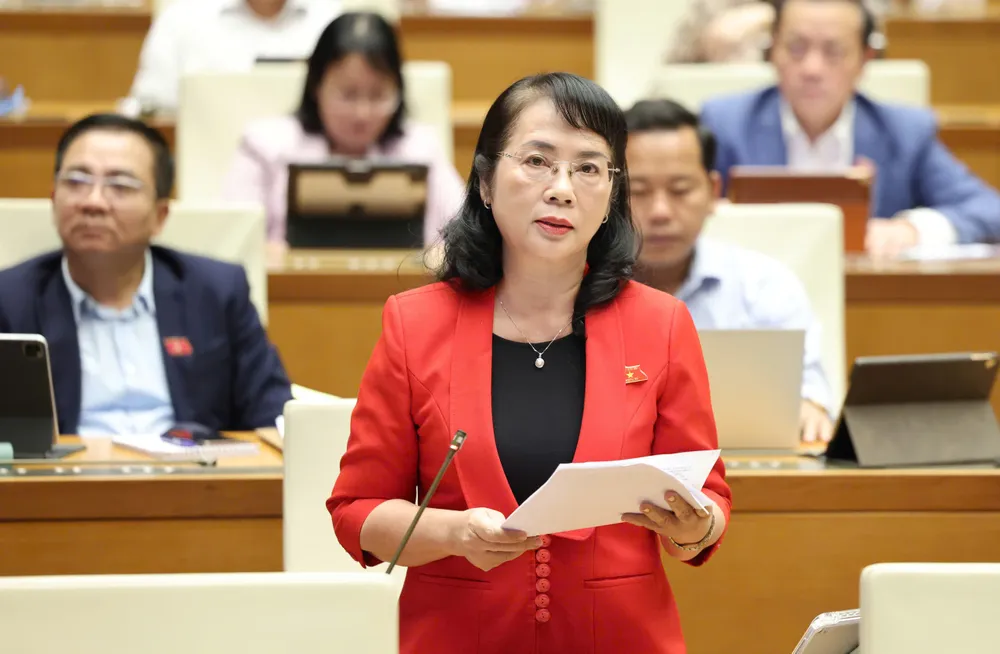
Based on that analysis, Representative Tran Kim Yen proposed improving the quality of environmental impact assessment (EIA) appraisal and post-audit, and requiring mandatory inter-regional and inter-district assessments for large-scale infrastructure projects. According to Representative Tran Kim Yen, improving the quality of EIA is not only a requirement for environmental management, but also a core element in ensuring safe and sustainable development and adaptation to climate change. In particular, for national transportation infrastructure projects, EIA should be considered a strategic forecasting tool, not just an administrative procedure.
She also suggested stepping up research and developing a national environmental risk map to integrate into infrastructure development planning; simultaneously, conducting post-environmental impact assessments; and shifting the mindset towards risk assessment and environmental adaptation.
The second issue raised by Representative Tran Kim Yen is the lack of a synchronized legal framework for waste-to-energy projects, leading to overlapping management and a lack of a unified mechanism. Therefore, the Representative proposed that the Government should soon issue specialized regulations on investment, licensing, and operational management of waste-to-energy plants.
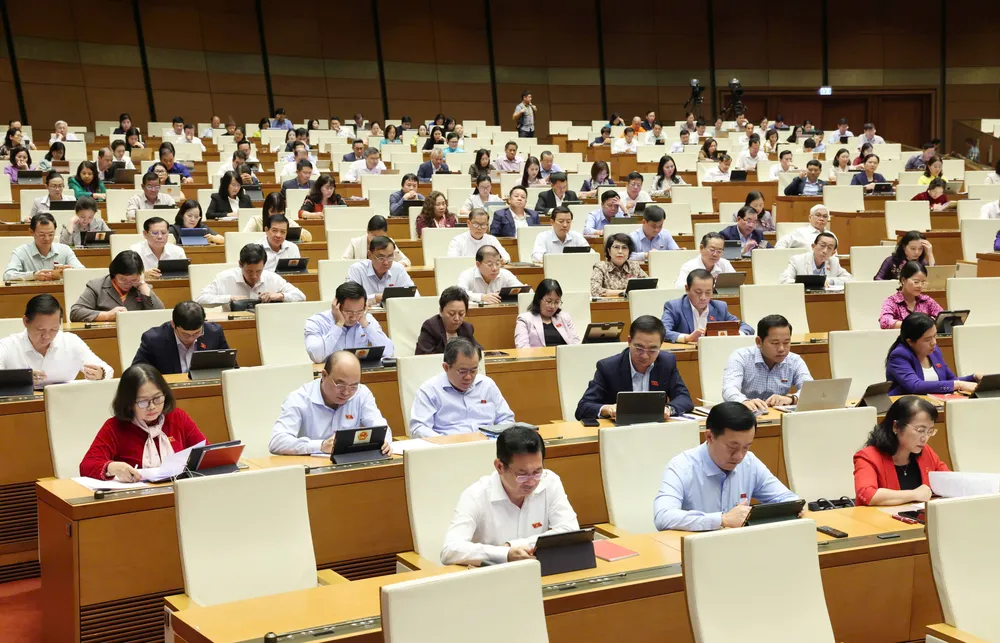
Budget allocation for environmental protection is too low.
Representative Nguyen Thi Viet Nga ( Hai Phong ) stated that currently, the country has a Vietnam Environmental Protection Fund at the central level and many provincial-level Environmental Protection Funds, established under the 2020 Environmental Protection Law; however, their operational effectiveness remains limited. Therefore, she proposed that the Government promptly issue a new decree on this matter, aiming to unify the operating mechanism of provincial-level funds, allowing them to receive grants, issue green bonds, and cooperate with the private sector in investing in environmental infrastructure; and expanding the authority of the funds to provide preferential loans, credit guarantees, or co-finance environmental protection projects with the potential for return on investment.
On the other hand, according to MP Nguyen Thi Viet Nga, the Ministry of Finance reported that the proportion of central government budget expenditure on environmental protection over the past three years has only reached less than 1/10 of 1% of the total national budget expenditure. This figure shows that the current spending is still too low compared to practical requirements, especially when we are facing pollution from household waste, industrial waste, craft villages, and climate change.
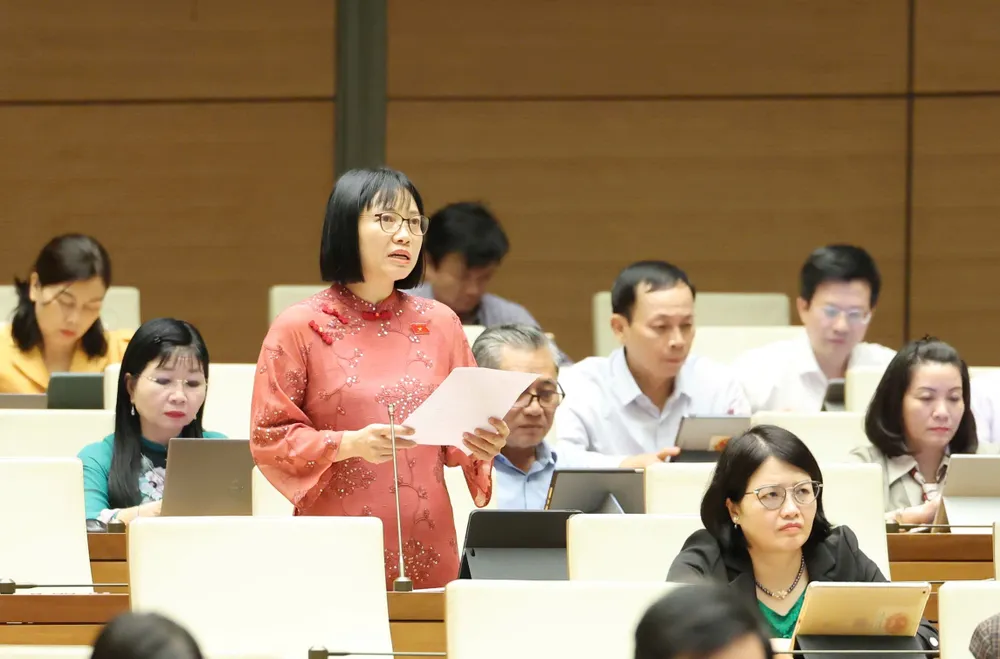
Representative Nguyen Thi Viet Nga proposed increasing the proportion of budget spending on environmental protection to at least 30% compared to the current level. She argued that environmental protection is not a "price to pay for development," but a prerequisite for sustainable development and a better quality of life for the people. If we improve the institutional framework, expand public-private partnerships, and invest a commensurate amount of budget, the environment will become the foundation and driving force for green growth, rather than a barrier.
The fact that budget spending is less than one-tenth of one-tenth of the total national expenditure reveals a worrying reality: we have not yet invested adequately in the environment, a sector directly linked to the health, livelihoods, and future of the entire nation. Meanwhile, climate change, air pollution, and clean water scarcity are becoming global challenges, and Vietnam is no longer an exception, as the monitoring reports have clearly shown. “If we do not invest more heavily now, the cost of addressing environmental consequences in the future will be dozens of times greater than the current cost of prevention,” said Representative Nguyen Thi Viet Nga.
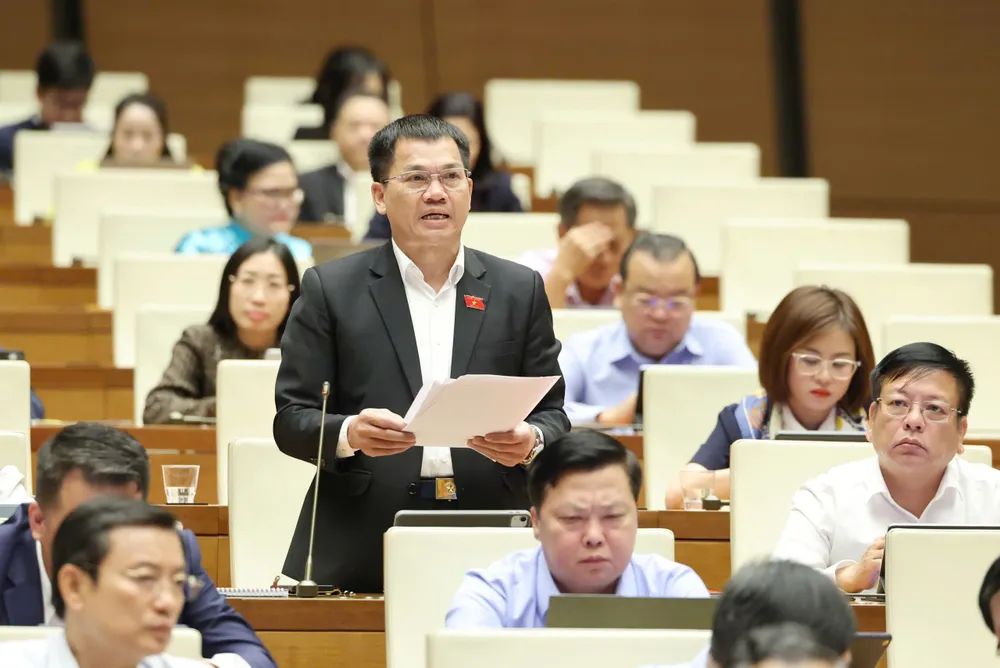
The opinions also highlighted the current state of urban pollution, especially wastewater. According to monitoring reports, the urban waste collection rate reached 97%, but only 18% of wastewater was treated, indicating that the majority of urban wastewater is being discharged directly into the environment.
According to National Assembly Deputy Duong Khac Mai (Lam Dong), managing the quality of surface water sources is also problematic, as most rivers are already polluted, threatening water security. He argued that water should be considered a national resource in order to find solutions to protect the quality of surface water sources.
Citing the recent severe flooding, including the current flooding in the central provinces, National Assembly Deputy Duong Khac Mai argued that it is urgent to address climate change and to promptly develop a law on climate change.
Source: https://www.sggp.org.vn/dbqh-chung-ta-van-chuc-thuc-su-dau-tu-tuong-xung-cho-moi-truong-post820402.html








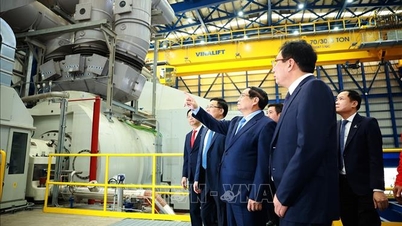

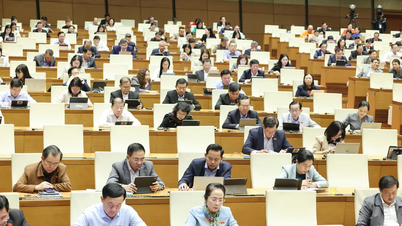
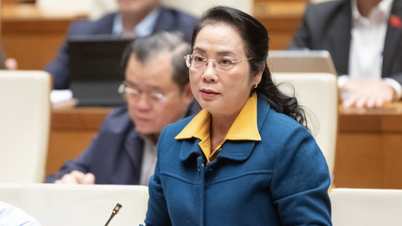

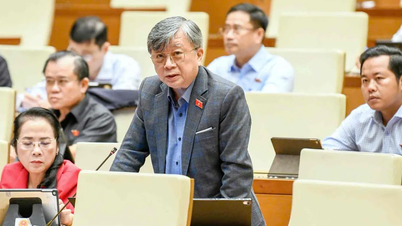





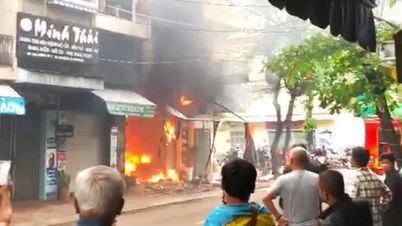
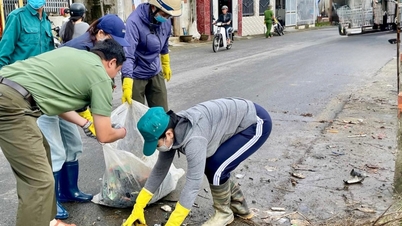


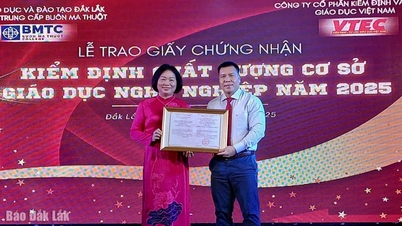
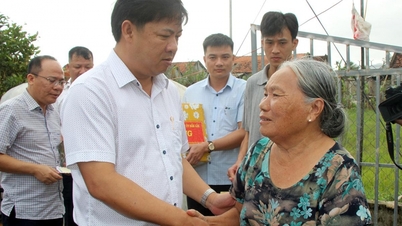




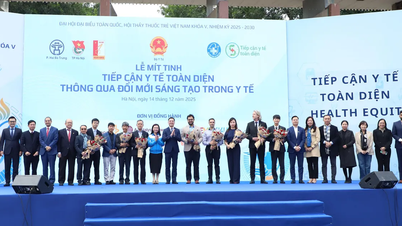
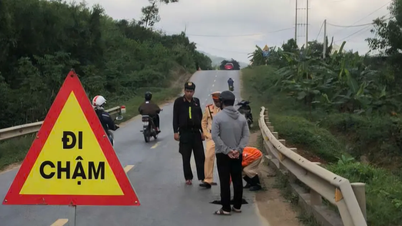
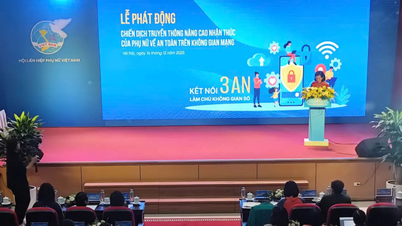

















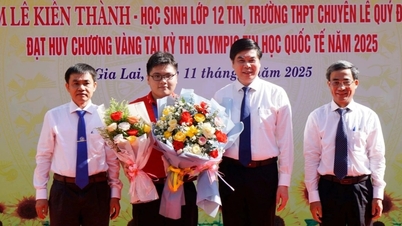


















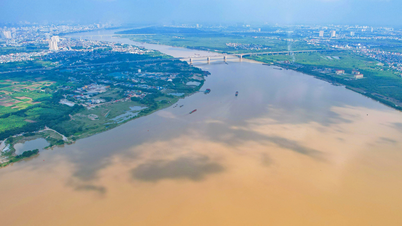



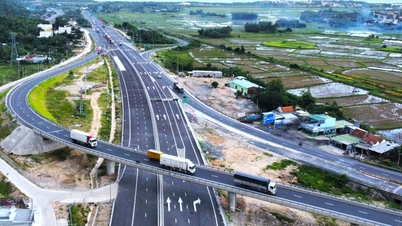
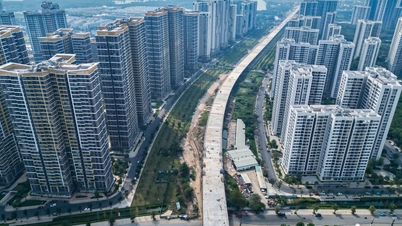

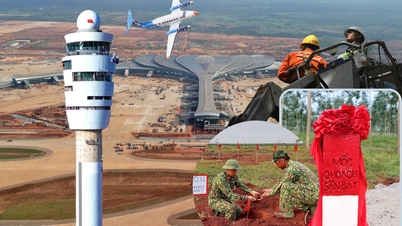















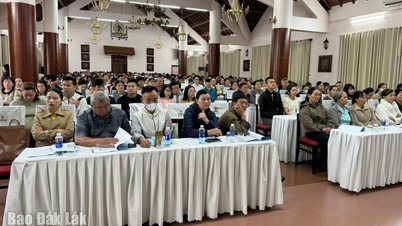









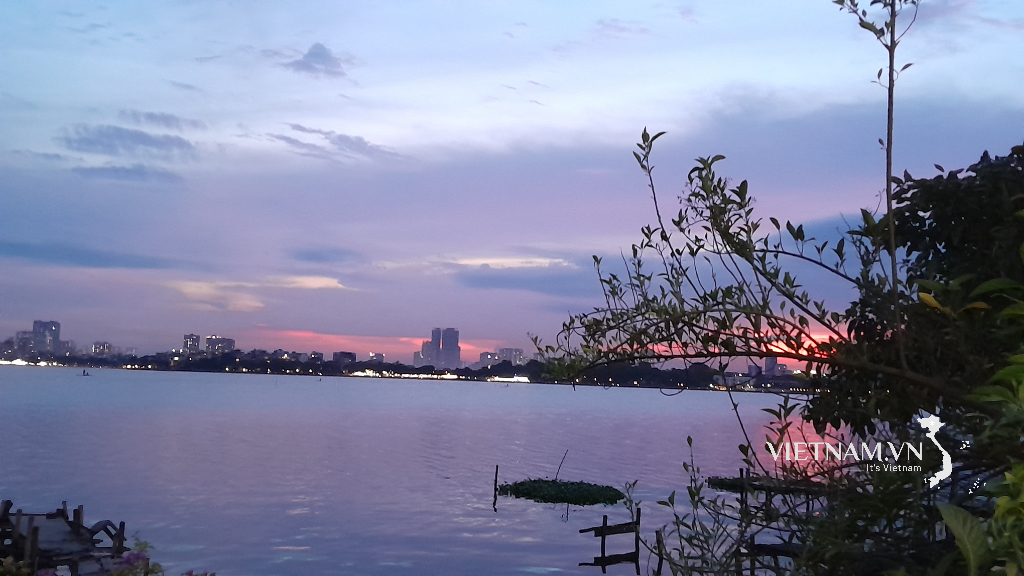



Comment (0)